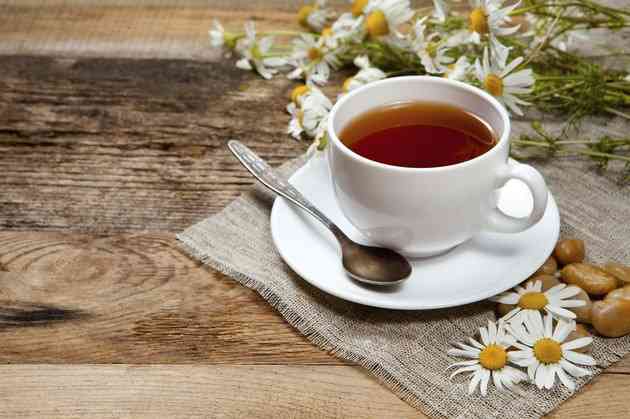The Disadvantages of Tea

If you love waking up to a cup of hot tea, keep on sipping. This beverage is high in antioxidants, and research shows it may help prevent heart disease, build stronger bones and even improve your mood, according to Harvard Health Publications. Tea isn't perfect, however, and does sometimes come with side effects. These issues are linked to true teas, which come from brewed tea leaves, and not necessarily herbal versions.
 A cup of tea next to some camomille flowers. (Image: vadimrysev/iStock/Getty Images)
A cup of tea next to some camomille flowers. (Image: vadimrysev/iStock/Getty Images)Iron Issues
Tea contains antioxidants called flavonoids, which provide many of the health rewards. Flavonoids, however, bind to the nonheme iron found in plant foods such as beans and vegetables as well as dairy products. If you drink your tea with these foods, therefore, your body may not be able to access some of the iron. To maximize absorption of this important nutrient, limit tea drinking to between meals only, or add a spritz of lemon to help counter the iron-binding effect.
Caffeine Complications
It doesn't have as strong a kick as coffee, but tea does contain caffeine, which can make you nervous, jittery and nauseated and cause irregular heartbeats and insomnia. Although content varies by brand, black tea typically contains the most caffeine, oolong has moderate caffeine content, and green and white teas contain the least caffeine. Caffeine levels in tea may range from 14 to 60 milligrams per cup, which is far less than the 200 to 300 milligrams per day that MedlinePlus considers moderate intake. However, it may not take much caffeine for some people to experience negative effects.
Sugar Overload
Plain tea doesn't contain any sugar or calories, but many bottled iced teas on the market are loaded with both. One major brand's sweetened tea provides 50 calories per cup, while another's has 90 calories per cup -- with all of those calories coming from added sugar. Despite the calorie load, sugar has no nutritional value, and the American Heart Association recommends that women get no more than 100 calories -- and men get no more than 150 calories -- from added sugar each day.
Tinted Teeth
While tea's rich color may look lovely in your teacup, you probably don't want your smile to match the hue. Unfortunately, tea can stain your teeth just like coffee, red wine and other colorful beverages. If staining is a concern, brush your teeth often -- ideally, immediately after finishing your tea. It may also help to drink water after your tea to rinse away the staining agents.




